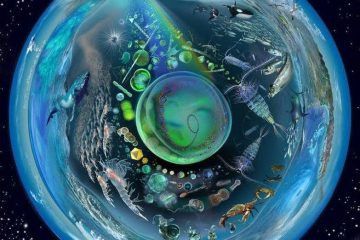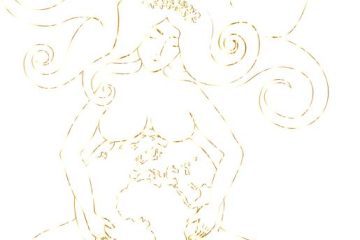Imagine a world where the delicate balance of ecosystems is not just a matter of scientific theory, but a living, breathing reality. Welcome to the realm of the Gaia Hypothesis, a captivating concept that challenges the way we perceive our planet. In this article, we delve into the depths of this intriguing hypothesis, exploring its origins, key principles, and the profound implications it has for our understanding of Earth as a holistic system. Join us on a journey of discovery as we unravel the mysteries of Gaia and how they shape our worldview.
Table of Contents
- The Paradigm Shift: Exploring the Gaia Hypothesis
- Mother Earth’s Self-Regulating Systems Unveiled
- A Call to Action: Embracing Gaia’s Wisdom
- Harmony Restored: Practical Steps for Gaia-Centric Living
- Q&A
- Concluding Remarks
The Paradigm Shift: Exploring the Gaia Hypothesis
Embark on a journey of ecological revelation as we delve into the Gaia Hypothesis – a groundbreaking theory that posits Earth as a self-regulating entity. Imagine a world where all living organisms, from the tiniest microbe to majestic forests, collectively contribute to maintaining our planet’s delicate balance. This intricate interplay between life forms and their environment forms the essence of the Gaia Hypothesis.
<p>By exploring this paradigm shift in environmental thinking, we come to appreciate the interconnectedness of all beings on Earth. The Gaia Hypothesis challenges our perception of nature merely as a backdrop to human existence, urging us to view the planet as a living, breathing organism in its own right. **Join us** as we unravel the mysteries of Gaia and ponder the profound implications this revolutionary concept holds for our understanding of the natural world.</p>
Mother Earth’s Self-Regulating Systems Unveiled
Mother Earth’s intricate web of interconnected systems is a marvel to behold. From the delicate balance of ecosystems to the harmonious interactions between flora and fauna, nature’s symphony plays out in a mesmerizing dance of life. The concept of Gaia, as proposed by scientist James Lovelock, suggests that the Earth itself operates as a self-regulating organism, maintaining conditions conducive to life.
Within Gaia’s realm, the biosphere, atmosphere, hydrosphere, and lithosphere intertwine in a delicate choreography that sustains life on our planet. The feedback loops between these interconnected systems ensure a dynamic equilibrium that adapts to external changes. Through the synergistic relationships between living organisms and their environment, Gaia orchestrates a symphony of life that has evolved over billions of years. Embracing the Gaia hypothesis unveils the intricate tapestry of Earth’s self-regulating systems and inspires a deeper appreciation for the interconnectedness of all living beings.
A Call to Action: Embracing Gaia’s Wisdom
The interconnectedness of all life on Earth is a concept that resonates deeply with the Gaia hypothesis. This theory proposes that the Earth functions as a complex, self-regulating system where living organisms and the environment interact to maintain the ecological balance. By embracing Gaia’s wisdom, we are called to recognize our role as stewards of the planet, fostering harmony and reverence for all beings.
<p>Through <strong>mindful practices</strong> and <strong>conscious living</strong>, we can tap into the essence of Gaia's teachings. From honoring the rhythms of nature to practicing sustainable habits, each individual action contributes to the greater whole. Let us heed the call to action, embracing Gaia's wisdom as a guiding light towards a more harmonious existence for all.</p>
Harmony Restored: Practical Steps for Gaia-Centric Living
In the realm of Gaia-centric living, attuning yourself to the interconnectedness of all living beings and the planet itself is key. Embracing the Gaia hypothesis involves not just understanding but actively participating in the harmonious dance of nature. Here are some practical steps to help you align with this earth-centered approach to life:
Connect with Nature:
- Immerse in the outdoors: Spend time in natural settings to foster a deeper connection with the Earth.
- Practice mindfulness: Be fully present in nature, observing its rhythms and beauty.
- Cultivate a garden: Nurturing plants can strengthen your bond with the ecosystem.
Live Sustainably:
- Reduce, reuse, recycle: Minimize waste and lessen your environmental footprint.
- Support eco-friendly initiatives: Choose products and services that prioritize sustainability.
- Conserve resources: Use energy and water efficiently to preserve Gaia’s natural balance.
By adopting these practices and embracing the interconnectedness of all life forms, you can actively contribute to the restoration of harmony with Gaia. Let your actions reflect the respect and reverence you hold for our planet and its intricate web of existence.
Q&A
Q&A: Exploring the Fascinating Gaia Hypothesis
Q: What is the Gaia Hypothesis all about?
A: The Gaia Hypothesis proposes that Earth is a self-regulating system where living organisms and the environment interact to maintain conditions suitable for life.
Q: Who developed the Gaia Hypothesis?
A: The Gaia Hypothesis was formulated by scientist James Lovelock and biologist Lynn Margulis in the 1970s.
Q: How does the Gaia Hypothesis differ from traditional views of Earth?
A: Unlike traditional perspectives that see Earth as a passive entity, the Gaia Hypothesis suggests that the planet behaves like a single, self-regulating organism.
Q: What evidence supports the Gaia Hypothesis?
A: Evidence for the Gaia Hypothesis includes the regulation of temperature, atmospheric composition, and ocean salinity, which seem to be kept within certain ranges conducive to life.
Q: Are there criticisms of the Gaia Hypothesis?
A: Critics argue that the Gaia Hypothesis anthropomorphizes the Earth and that the apparent regulation of conditions on Earth could be due to natural processes rather than a conscious mechanism.
Q: How does the Gaia Hypothesis impact our understanding of environmental issues?
A: The Gaia Hypothesis prompts us to view Earth as a complex and interconnected system, encouraging us to consider the implications of human activities on the planet’s delicate balance.
Q: What are some real-world applications of the Gaia Hypothesis?
A: The Gaia Hypothesis has influenced fields such as ecology and environmental science, guiding our approach to conservation and sustainable living practices.
Concluding Remarks
As we journey through the realms of the Gaia Hypothesis, we are reminded of the intricate interconnectedness of our planet and all living beings that call it home. The notion that Earth functions as a self-regulating, living organism challenges us to reconsider our role in preserving the delicate balance of nature. From the tiniest microorganism to the vast oceans and towering forests, each component plays a vital part in the symphony of life on Gaia.
As we gaze upon the beauty of our planet, let us embrace the wisdom of the Gaia Hypothesis and strive to be stewards of this precious ecosystem. Let us tread lightly upon the Earth, with reverence and gratitude for the gift of life it sustains. May we find harmony in our actions, knowing that we are but a thread in the intricate tapestry of Gaia.
In our pursuit of knowledge and understanding, may we walk hand in hand with nature, honoring the interconnected web of life that binds us all. As we ponder the mysteries of Gaia, let us remember that in protecting her, we ultimately protect ourselves. Let us stand as guardians of this wondrous planet, united in our shared quest to preserve and cherish the Gaia Hypothesis for generations to come.



0 Comments